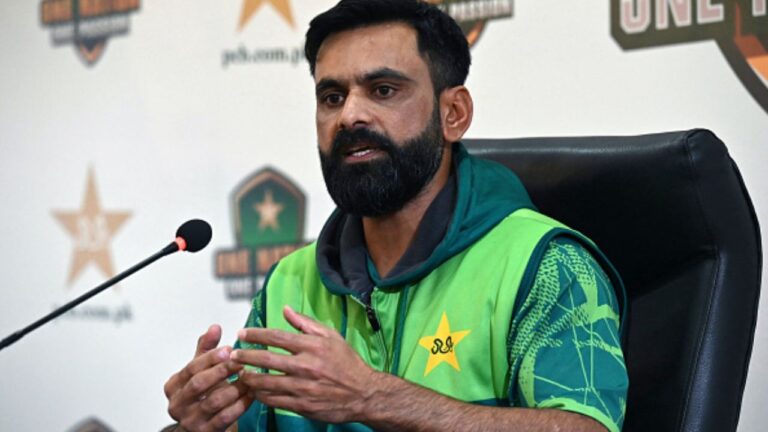News Desk, Kolkata : In the aftermath of Pakistan’s World Cup exit from the ODI format, changes have been afoot in Pakistani cricket. The responsibility of leadership across all three formats was relinquished by Babar Azam. This marked a significant shift in the cricketing landscape as Pakistan underwent a major overhaul post the ODI World Cup.
The transformation extended to the coaching staff and selectors as well. The director and coach of the Pakistan cricket team, Mohammad Hafeez, parted ways with the squad’s cricketers after the World Cup. The entire structure of the team underwent a revamp, leading to alterations in the coaching staff and the captaincy.
Following Pakistan’s dismal performance in the ODI World Cup, Mohammad Hafeez, who had been serving as the director of the Pakistan cricket team, resigned from his role. While this step was part of the broader changes in Pakistani cricket, Hafeez’s departure indicated a significant shift in the team’s dynamics.
The coaching and captaincy roles were overhauled in an attempt to rejuvenate the team. Despite the extensive changes, the current state of affairs within the Pakistani team reflects a tumultuous internal environment. Reports surfaced of internal discord between the team’s cricketers and Mohammad Hafeez, who also acted as a selector.
The ongoing series against New Zealand has unfolded against this backdrop of internal upheaval. The performance in T20 matches has not been up to par, with Pakistan facing defeats against New Zealand. The struggles have intensified, leading to a challenging situation for the Pakistani cricket team.
Moreover, Mohammad Hafeez, the director of the Pakistan cricket team, has been at the center of controversies. Issues have arisen regarding his contractual agreement and the proposed extension of a long-term contract. However, recent developments suggest that the recommendation for a short-term contract extension has been suggested by the provincial coordination minister.
In light of the current circumstances, the future of Mohammad Hafeez’s association with the Pakistan cricket team remains uncertain. While a short-term contract extension has been proposed, the ongoing struggles and internal tensions may influence the final decision.
Adding to the turmoil, the dressing room atmosphere under Mohammad Hafeez’s tenure has been described as tense, with lengthy team talks and specific rules for players. The departure of three foreign coaches, Mickey Arthur, Grant Bradburn, and Andrew Puttick, has further contributed to the shake-up in Pakistan cricket.
The ongoing changes indicate a broader reevaluation of the team’s structure, with the departure of three foreign coaches from the Lahore National Cricket Academy. The decisions made by the Pakistan Cricket Board (PCB) underscore a significant shake-up in the coaching and managerial roles.
The repercussions extend beyond the coaching staff to the players, with concerns raised about the impact on the team’s performance. The departure of Mohammad Hafeez from his role as director has opened up discussions about potential changes in leadership, coaching, and team dynamics.
In the midst of these changes, the fate of Pakistan cricket hangs in the balance. The upcoming matches in the series against New Zealand will likely play a pivotal role in shaping the future direction of the team. The uncertainties surrounding Mohammad Hafeez’s contract and the internal dynamics within the team raise questions about the path forward for Pakistan cricket.
As the series unfolds, cricket enthusiasts and analysts closely watch the team’s performance, hoping for a turnaround in fortunes. The challenges faced by Pakistan cricket, both on and off the field, make it a critical juncture for introspection and strategic decisions to pave the way for a resurgence in the international arena. The ongoing narrative continues to evolve, leaving the cricketing community eagerly anticipating the resolution of internal issues and a positive transformation for Pakistani cricket.
DISCLAIMER
Our news media denounces any form of bias and disapproves of sensationalism. The disseminated news is entirely educational and aimed at social awareness. Our media maintains absolute impartiality, adhering solely to the purpose of education and social consciousness.


